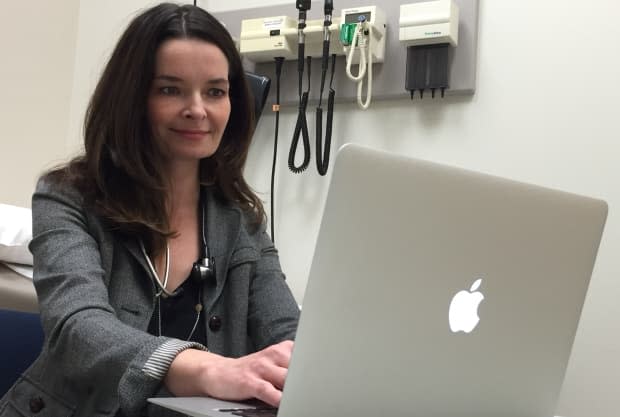
At Siksika Health Services, Jacey Solway is keeping a close eye on her diabetic patients, who have started to show up in greater numbers since the province began lifting COVID-19 public health measures earlier this year.
"The past two years have been really hard on a person, especially with the amount of stress that came with the pandemic — with people losing their jobs. Their normal day-to-day life was thrown off," said Solway, a chronic disease management nurse.
"We do see more clients who we haven't been able to catch in these last two years."
Diabetics require close, ongoing medical care, and Solway is finding some are showing up in need of more medication and others are simply trying to regain control of their disease.
The clinic, she said, is monitoring their needs closely and watching for any potential increase in new diagnoses.
"That's something that's on our radar here."
New diagnosis after COVID infection
Dr. Doreen Rabi, a diabetes specialist, is seeing some clear trends in her Calgary clinic, more than two years into the pandemic.
"We are seeing more referrals for new onset diabetes. And I'm certainly seeing the need for increasing therapy for individuals that are living with diabetes. And then [we're] also seeing the impacts that we're seeing in every other health condition — just worsening diabetes," said Rabi, a professor at the University of Calgary's Cumming School of Medicine.

"What we're seeing fairly consistently [in the research] is that in the year following a diagnosis of COVID, we are seeing an increased risk of new diabetes and also an increased risk of worsening diabetes."
It's yet another puzzling pandemic phenomenon.
According to Rabi, one recent U.S. study — looking at the medical records of veterans — found people with a COVID diagnosis had a 40 per cent increased risk of developing new diabetes compared with those who hadn't had a COVID-19 diagnosis or relative to a historical control group.
But this area of research is relatively new and there are still many unknowns.
While the reasons aren't entirely clear, Rabi believes there are likely a number of factors contributing to the trends she's seeing.
"While COVID could possibly alter someone's ability to make insulin, that's probably not the primary driver of new diabetes," she said.
A prolonged inflammatory response, after a COVID infection, could lead to insulin resistance, she said.
Factors known to increase the risk of diabetes have also been more acute during the pandemic, including unemployment, poverty, food insecurity and isolation.
And pandemic-related health-care access delays are likely playing a key role, too, according to Rabi, who is the division head for endocrinology and metabolism at the medical school.
"There was a period of time where people accessing the resources and care they needed was really quite impaired. So whether the surge in referrals we're seeing now is purely related to prior COVID infections or related to just sort of major system backups related to managing COVID is actually quite hard to say," she said.
Dr. Neeja Bakshi, an Edmonton-based internal medicine physician, is also seeing an increase in patients at her clinic with metabolic conditions, including new or worsening diabetes along with hypertension and high cholesterol.

It's difficult to tease out the cause, she said, noting people often experience significant changes in their lives when they're diagnosed with COVID, including a drop in physical activity and changes in diet.
"So much has happened over the last two and a half years that has affected people's lifestyles, their ability to access medication [and] ability to access care," she said.
In an effort to better understand the relationship between the virus and chronic conditions like diabetes, Bakshi now includes questions about COVID infections as part of her routine screening process.
"We're starting to take notes and histories on where the diabetes came from — particularly in those that may not have been high risk to begin with," she said.
"In medicine, we always look at risk factors of 'what is your family history like,' 'what is your lifestyle like,' 'what is your genetic disposition like.' And now I think we have to add in, 'did you have COVID?'"
It is yet another way health-care providers are trying to adapt, as the pandemic drags on, and slowly piece together the long-term implications of COVID-19.
"It shows that we have a long way to go in understanding how COVID works," Bakshi said.
"This virus is quite devastating. It's quite inflammatory. It's quite systemic. It's involving a lot of organ systems. And I don't know that we truly understand the full depth of that yet."
Alberta diabetes cases worsening as pandemic drags on, say clinics - Yahoo News Canada
Read More

No comments:
Post a Comment